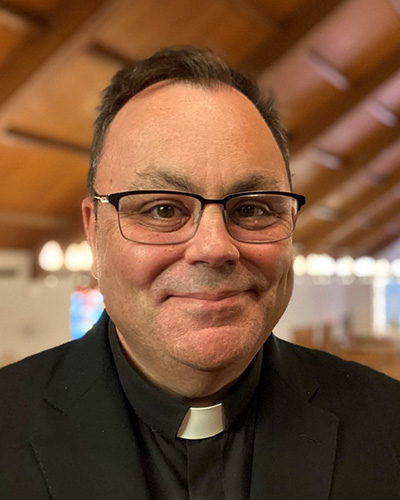“For the foolishness of God is wiser than human wisdom, and the weakness of God is stronger than human strength.“
The concluding line of today’s second reading might give us pause. Does Saint Paul claim that God is foolish or possesses weak characteristics? He does not. Rather, he is commenting on why people reject the idea of a crucified Christ as weak and foolish. Paul uses the Greek word mōron, which means what it appears to in English: something stupid, idiotic, or silly. From a pagan perspective, it would be absurd to think God would sacrifice His only Son to pay the penalty for human sin. Only a weak deity could be killed on a cross like a criminal.
The believer, however, recognizes God’s “foolishness” in giving over His Son, as the greatest of all wisdom. In addition, a disciple recognizes the incredible strength required of Christ to remain on the cross and die, instead of exercising His power over those who would kill Him. Only believers can penetrate the wisdom behind what appears to be foolishness and the power behind what appears to be weakness.
How do you reflect on the journey that leads to the cross, as well as the crucifixion itself? Do you even reflect upon it, or has the symbol of the cross become so commonplace that it does not give you pause? This is my greater concern for us today; that the cross and crucifixion of our Lord is seen as neither foolish nor weak, neither wise nor strong, but is seen with either indifference or not seen at all.
Saint Andrew of Crete, an 8th century bishop, wrote the following.
Had there been no cross, Christ could not have been crucified. Had there been no cross, life itself could not have been nailed to the tree. And if life had not been nailed to it, there would be no streams of immortality pouring from Christ’s side, blood, and water for the world’s cleansing. The legal bond of our sin would not be cancelled, we should not have attained our freedom, we should not have enjoyed the fruit of the tree of life and the gates of paradise would not stand open. Had there been no cross, death would not have been trodden underfoot, nor hell despoiled.
The cross is honorable because it is both the sign of God’s suffering and the trophy of his victory. It stands for his suffering because on it, he freely suffered unto death. But it is also his trophy because it was the means by which the devil was wounded and death conquered; the barred gates of hell were smashed, and the cross became the one common salvation of the whole world.
There is no Easter without the cross, and if there is no Easter, there is no hope. As we journey through these days of Lent to Easter, let us ever glory in the cross of Christ and the triumph of God’s great love.
SACRAMENT OF RECONCILIATION – Without question, the practice of going to confession may be seen as a cross. It is humbling and even may be seen as humiliating. Yet, like the process of the Lord’s passion, it is done in the context of love and is the means to new life. The cross is the sin we bear, not the Sacrament.
One of the stumbling blocks that keeps us from the Sacrament of Reconciliation is the fear of being recognized and remembered by the priest. I can tell you that I and other priests are graced with amnesia of sins. We do not remember them or think of them when we see you outside the Sacrament. To make anonymity easier, our confessionals are in the process of a renovation that will provide anonymity even for those who are more comfortable sitting rather than kneeling. One of the confessional renovations will be complete by this weekend.
I am happy to share with you that over the last several months, many of our Faith Formation students in the home classes have been coming to celebrate the Sacrament of Reconciliation on Saturday afternoons. While we can schedule times for the Faith Formation students who attend class here on campus, as well as our school students, it is difficult to do so for those whose classes meet in homes. I thank the catechists and parents who are bringing our children to the sacrament. An additional bonus is that the parents and catechists are leading by example and are also celebrating the Sacrament of Reconciliation. The graces of being reconciled with God and freed from the burden of sin are being poured out in our parish. I encourage all to follow the example of our young people and receive the Sacrament of Reconciliation this Lent.
LENTEN ACTIVITIES – I thank those who have been attending our Lenten Mondays, Stations of the Cross, and this week’s Soup Supper. This Monday, we welcome back Fr. Lachlan Cameron as the presider at the Monday evening Mass.

